Community power in the 21st century must be backed up by community knowledge. That knowledge depends on strong research partnerships involving those impacted by the data. WOEIP is committed to finding the data or designing the research to support successful resident-driven advocacy. We share this knowledge freely and welcome community members to use our reports for positive change in Oakland and beyond.
Quality of life and community resilience
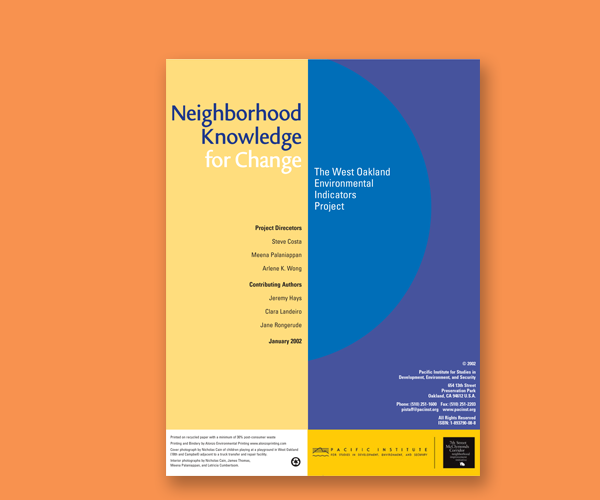
Neighborhood Knowledge for Change
The genesis of the West Oakland Environmental Indicators Project, this seminal report outlines 17 core environmental indicators defined by West Oakland residents.
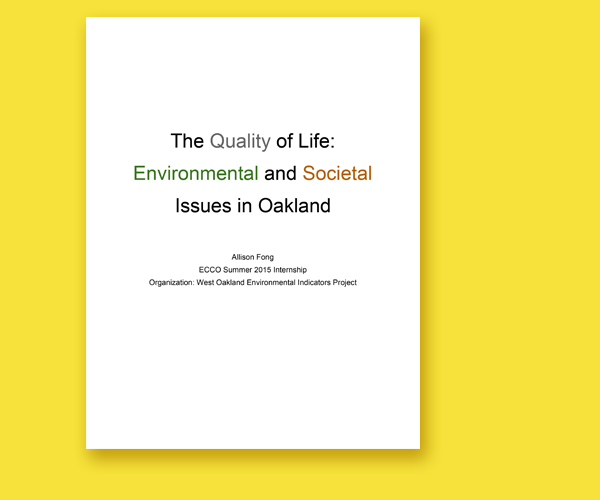
The Quality of Life: Environmental and Societal Issues in Oakland
What are the most important issues to Oakland residents and how does that change from neighborhood to neighborhood? We sought to determine if differences in attitudes toward climate impacts also exist between between the Oakland Hills and the flatlands neighborhoods.
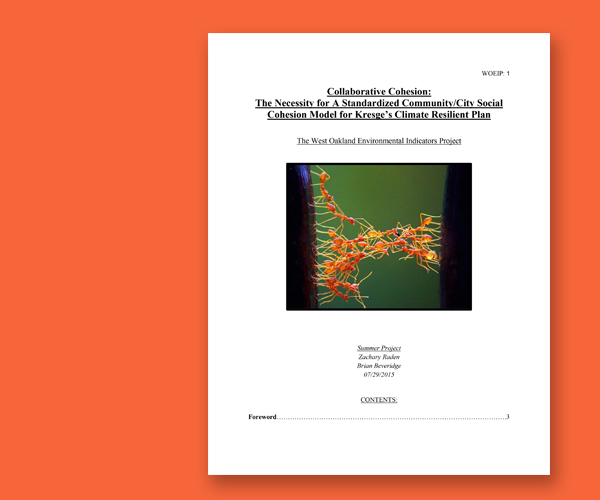
Collaborative Cohesion: The Necessity for a Standardized Community/City Social Cohesion Model for Kresge’s Climate Resilient Plan
Social cohesion can be a powerful concept in understanding the potential resilience a particular
community holds. This study looks at social cohesion and its potential use in solving issues of gentrification through public policy.
Health and environment
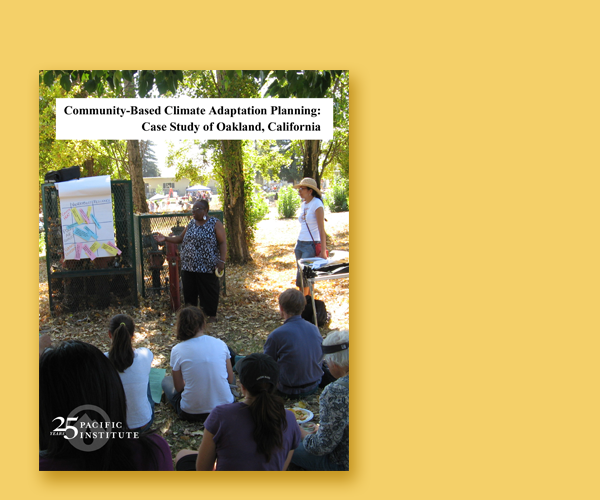
Community-Based Climate Adaptation Planning: Case Study of Oakland, California
Here, we provide a detailed analysis of climate impacts, vulnerabilities, and adaptation options in a major economic center: Oakland, California. The goal of this study is to inform the development of a comprehensive and equitable climate adaptation plan effort.
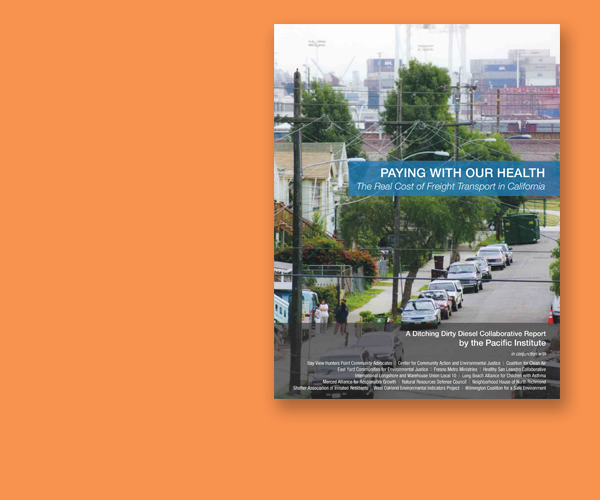
Paying with Our Health: The Real Cost of Freight Transport in California
In this report we show that pollution from freight transport severely burdens Californians, especially the predominantly low-income people of color living close to freight transport hubs. We present data on the high and often hidden health, economic, and social costs that are not accounted for by the freight transport industry. And we tell the stories of people who live, work, and play near California’s freight transport hubs.
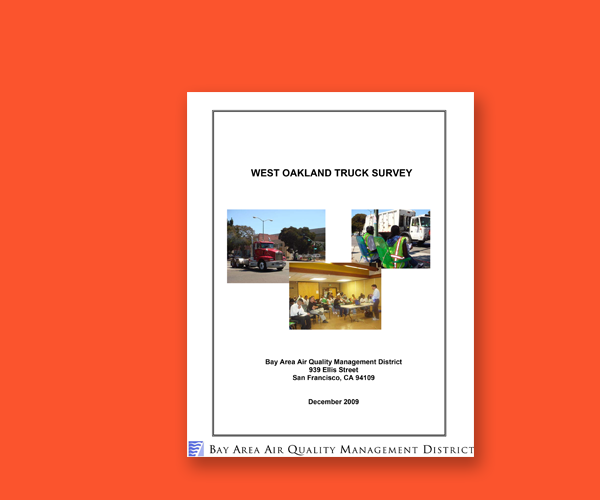
West Oakland Truck Survey
This study was initiated to address uncertainties raised in the Health Risk Assessment (HRA) conducted by the California Air Resources Board (CARB) in 2008 to assess health risks from diesel exhaust in the West Oakland community (Diesel Particulate Matter Health Risk Assessment for the West Oakland Community).